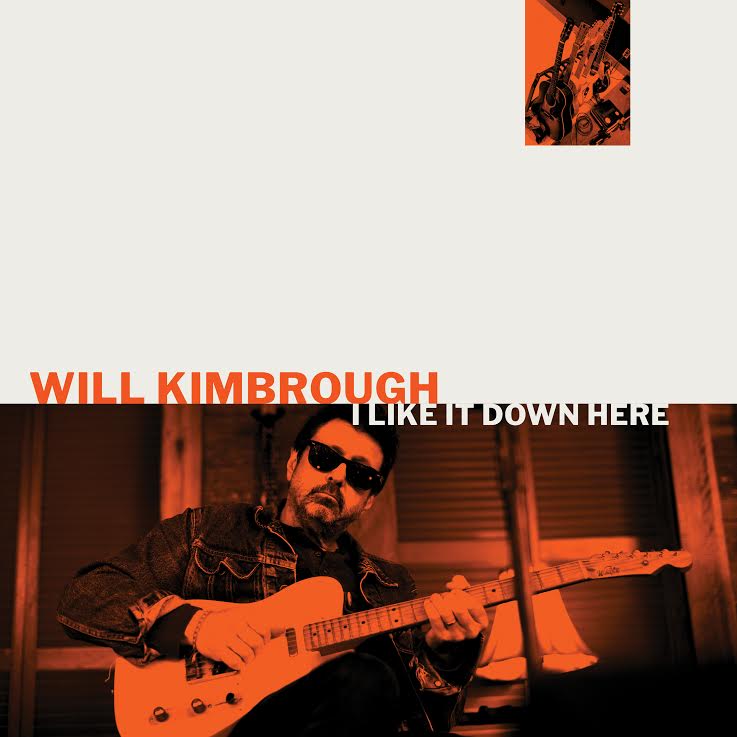With Voice and Guitar, Will Kimbrough Explores Life ‘Down Here’

Will Kimbrough certainly deserves to be better known than he is, and his new album will go a long way in getting his music out to more listeners. Kimbrough is a flawless guitarist who never wastes a note and plays always in the service of the music. He’s been laying down the river of notes that flow beneath Emmylou Harris’ crystalline vocals, Brigitte DeMeyer’s stunning songs, and, most recently, Shemekia Copeland’s earthy, but at the same time soaring, blues shouts. Like Duane Allman, Kimbrough is one with his guitar, his music flowing out of his fingers directly to his instrument, and this oneness also imbues his songwriting, with lyrics flowing out of his heart and soul as he reflects on life around him, especially as it related to his Deep South homeland.
Kimbrough plays almost every instrument on I Like It Down Here, but he’s joined by Bryan Owings on drums and percussion, Chris Donohue on bass (Kimbrough plays bass on “Alabama (For Michael Donald)”), and Jim Hoke on sax. Lisa Oliver-Grey joins him on vocals for the entire album, with DeMeyer lending her vocals to “Buddha Blues.”
The title track is a swampy jazz funk whose minor chord foundation belies the celebratory nature of living life as the singer damn well pleases: “I like it down here with the hobos and the drunks … / I like a wake-up call at half past one / And if I had a job I would get her done / I can catch right fine trash fish off the pier.”
Copeland’s vocals float around Kimbrough’s on the sparse and haunting blues lament “Alabama (For Michael Donald).” The song is a remembrance that jolts us out of our complacency; the jangling piano and the rolling drums lend a brightness that masks the palpable horror of Michael Donald’s death by lynching in 1981 (Donald was the last public victim of lynching in the US) and the indelible image of hatred that we can’t stop seeing. “I’m Not Running Away” opens with a couple of notes and tone from Lynyrd Skynyrd’s “Tuesday’s Gone,” but scampers off into a Pure Prairie League-like celebration of the tension between staying and going. “When I Get to Memphis” rocks along joyously, fueled by Kimbrough’s slide, and “It’s a Sin” opens with a phrase from the Stones’ “I’ve Got the Blues.” “It’s a Sin” sways gloriously along with Hoke’s sax, and the gospel-inflected number swells with Kimbrough’s guitars and keys as the vocals spiral higher and higher.
I Like It Down Here reveals Kimbrough’s musical genius: his way with a song, his impeccable guitar work, his brilliant production, and his ability to reach the heights and the depths of our emotions with his vocals.




